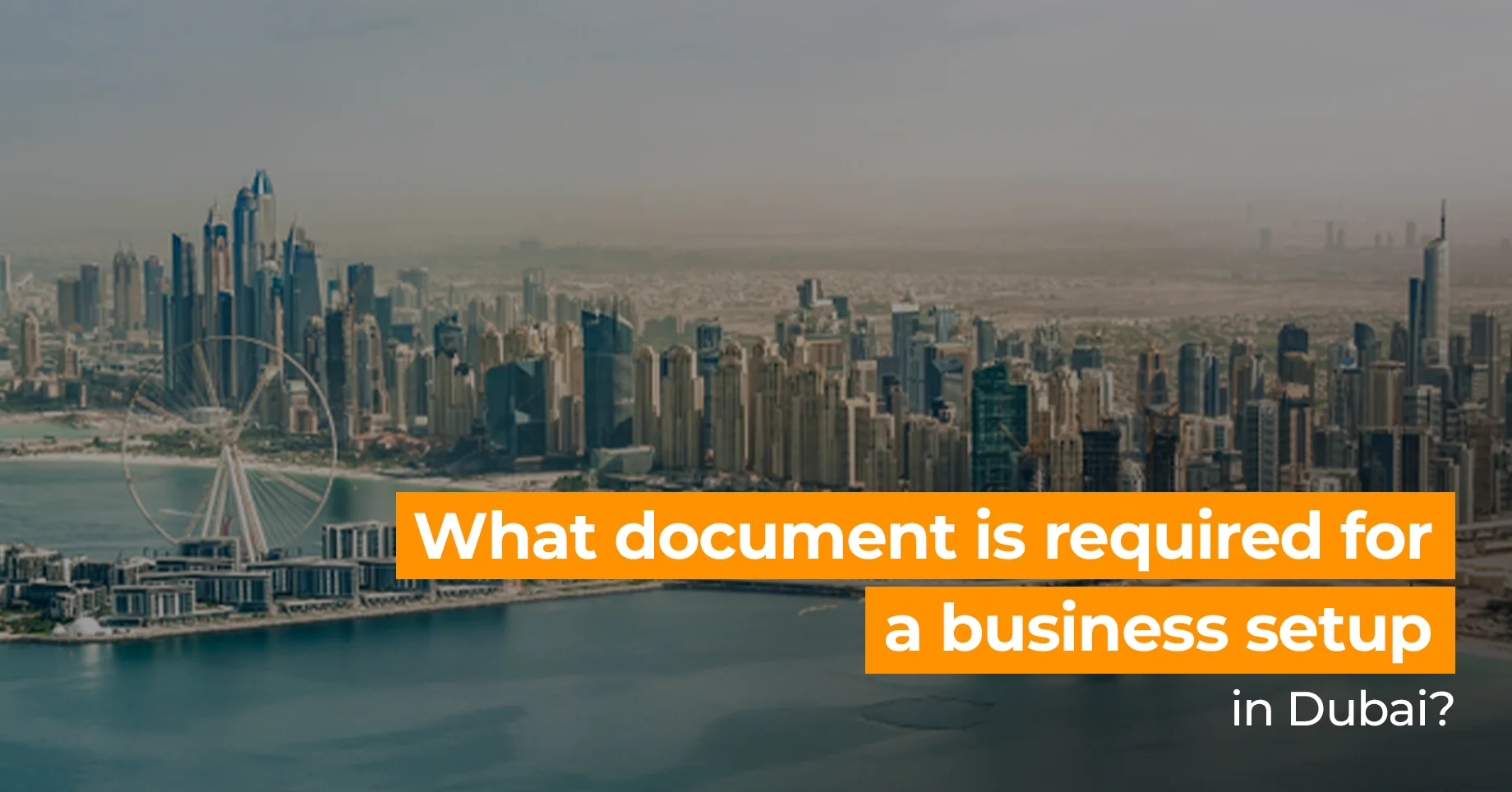Dubai is a popular destination for global entrepreneurs and investors. The year 2024 presents a fresh landscape of opportunities and challenges for setting up a business in Dubai. Whether you're a seasoned investor or a budding entrepreneur, understanding the documentation required for a new business setup in Dubai is essential. Here's a comprehensive guide to help you navigate the complexities of establishing your enterprise in this vibrant city.
1. Choosing the Business Structure
Before diving into the documentation, choosing the right business structure is crucial. The type of entity you establish whether it’s a Limited Liability Company (LLC), Free Zone Company, or Sole Proprietorship will dictate the specific documents required.
-
Mainland Company (LLC): Ideal for businesses aiming to trade within the UAE market.
-
Free Zone Company: Offers benefits like 100% foreign ownership and no corporate taxes, albeit with certain trade restrictions within the UAE.
-
Sole Proprietorship: Perfect for solo entrepreneurs and freelancers, offering full ownership and control.
2. Essential Documents for Business Setup in Dubai
To ensure a smooth process for setting up a company in Dubai, here’s a detailed list of required documents:
A. Initial Documents
-
Business Plan: A detailed plan outlining your business model, target market, financial projections, and operational strategy.
-
Trade Name Reservation Certificate: Secure a unique trade name, issued by the Department of Economic Development (DED) or the relevant Free Zone Authority.
-
Initial Approval Certificate: This certificate indicates that the UAE government has no objections to your business setup.
B. Personal Identification Documents
-
Passport Copies: Copies of passports of all shareholders and managers.
-
Visa Copies: UAE residence visas (if applicable) and entry stamps.
-
No Objection Certificate (NOC): Required for expatriates, indicating that their current UAE sponsor has no objections to the new business.
C. Legal Documents
-
Memorandum of Association (MOA): Outlines the company's shareholding structure and business activities; notarization is required for LLCs.
-
Articles of Association (AOA): Details the operational framework and management structure.
-
Local Sponsor Agreement: Necessary for mainland companies, involving a UAE national sponsor holding 51% of the business shares.
D. Location Documents
-
Lease Agreement: Proof of a physical office space is mandatory. Free Zone companies must have this space in a Free Zone area.
-
Ejari Registration Certificate: Confirms tenancy contract registration with the Real Estate Regulatory Authority (RERA).
E. Financial and Bank Documents
-
Share Capital Deposit Certificate: Proof of capital investment in a UAE bank account, required for certain business types.
-
Bank Reference Letter: A letter from your current bank indicating your financial standing.
F. Additional Specific Documents
-
Professional License: Required for businesses providing professional services like consultancy or medical practices.
-
Industry-Specific Approvals: Additional approvals may be needed from relevant government bodies, depending on the business activity.
3. Special Considerations
Understanding the nuances between Free Zone and Mainland setups is vital. Free Zone businesses enjoy simplified documentation processes but face trade restrictions. Mainland companies allow broader trading opportunities but require a local sponsor. Additionally, all documents must be translated into Arabic and attested by the UAE Ministry of Foreign Affairs if they are in a foreign language.
4. Conclusion
Setting up a business in 2024 involves careful planning, especially concerning documentation. The correct paperwork not only ensures compliance with local laws but also lays a strong foundation for your business operations. Whether opting for a Free Zone or mainland setup, understanding the required documents and procedures will streamline the process, positioning your enterprise for success in one of the world’s most dynamic markets.
FAQs
Q1: What are the key factors to consider when setting up a business in Dubai?
A: Key factors include understanding the local regulatory framework, choosing between free zones and the mainland, securing the appropriate licenses, and adapting to local customs and business practices.
Q2: How can foreigners navigate the business environment in Dubai?
A: Foreigners should familiarize themselves with local regulations, consider local partnerships if necessary, and conduct comprehensive market research to tailor their business approach.
Q3: What are the advantages of setting up a company in Dubai?
A: Advantages include Dubai’s strategic location, advanced infrastructure, favorable tax regimes, and supportive government policies.
Q4: What challenges might one face when setting up a business in Dubai?
A: Challenges include navigating cultural differences, ensuring regulatory compliance, and adapting to a fast-paced and competitive market environment.
Q5: What future trends should investors be aware of when considering a new business setup in Dubai?
A: Key trends include increased technology integration, a focus on sustainability, and diversified investment opportunities in emerging sectors.
